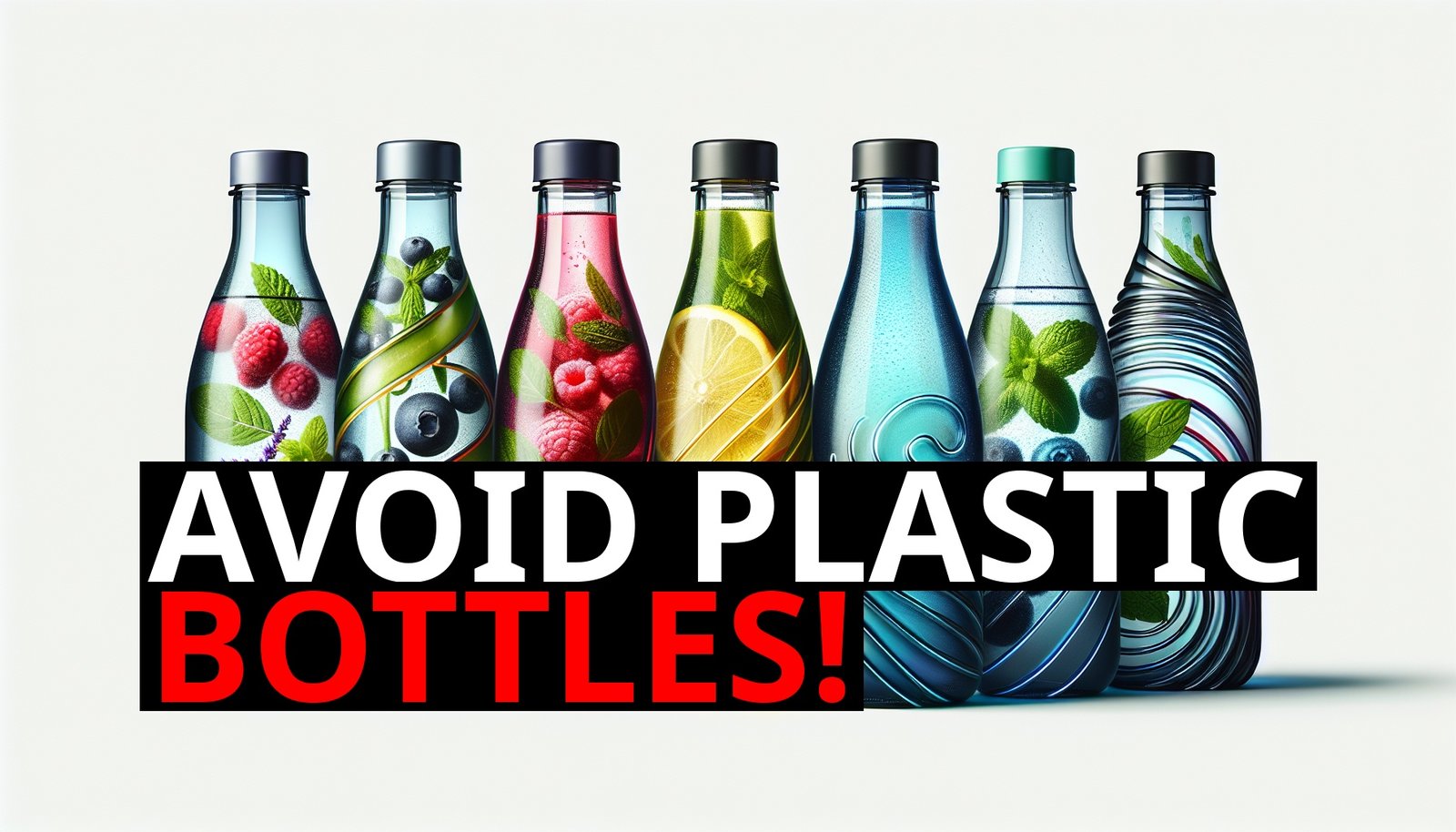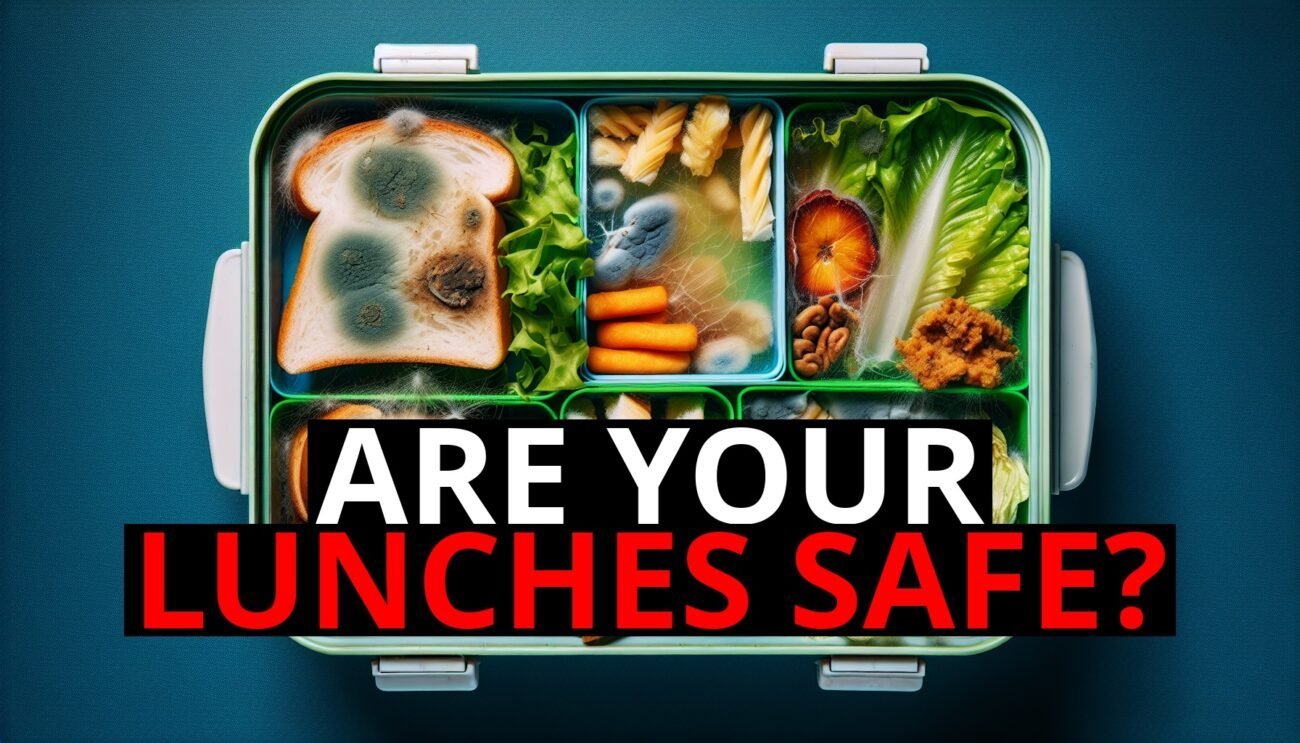Could Your Water Bottle Be Putting Your Health At Risk?
You reach for your water bottle, ready to take a sip, confident that staying hydrated is one of the best things you can do for your health. But have you ever wondered if your water bottle might be doing more harm than good? With so many options on the market, it’s easy to overlook the potential risks associated with different materials. From plastic to stainless steel to glass, not all water bottles are created equal.
The good news is that you don’t have to sacrifice convenience for safety. Let’s dive into the best water bottle options available and find out which ones are truly safe for your health, ensuring that every sip you take is as healthy as possible.
The Dangers Lurking In Plastic Water Bottles
Plastic water bottles are everywhere—they’re lightweight, inexpensive, and easy to carry around. But despite their popularity, plastic water bottles come with some significant health concerns:
– Chemical Leaching: Many plastic bottles contain harmful chemicals like Bisphenol A (BPA), Bisphenol S (BPS), and phthalates. These chemicals can leach into the water, especially when the bottle is exposed to heat or sunlight. BPA and its alternatives are known endocrine disruptors, meaning they can interfere with hormone functions in the body, potentially leading to health issues such as reproductive problems, metabolic disorders, and even cancer.
– Microplastics: Recent studies have found that microplastics—tiny plastic particles—can shed from plastic bottles into the water you drink. While the long-term health effects of consuming microplastics are still being studied, early research suggests that they could pose a risk to human health.
– Durability Issues: Plastic bottles are prone to wear and tear, leading to cracks and scratches where bacteria can thrive. Reusing plastic bottles, especially those not designed for multiple uses, can increase the risk of chemical exposure and bacterial contamination.
Given these concerns, it’s worth considering safer alternatives to plastic water bottles.
Stainless Steel Water Bottles: A Durable And Safe Option
Stainless steel water bottles have become a popular alternative to plastic, and for good reason. They offer several benefits that make them a top choice for health-conscious consumers:
– Chemical-Free: Stainless steel is a non-reactive material, meaning it doesn’t leach harmful chemicals into your water. It’s completely free from BPA, phthalates, and other toxic substances commonly found in plastic.
– Durability: Stainless steel is known for its durability. These bottles are resistant to dents, scratches, and corrosion, making them ideal for daily use and outdoor activities. They’re also easy to clean and don’t retain odors or flavors.
– Temperature Control: Many stainless steel bottles are double-walled and vacuum-insulated, which means they can keep your drinks cold for up to 24 hours or hot for up to 12 hours. This makes them a versatile option for both hot and cold beverages.
While stainless steel bottles are generally safe, it’s important to choose high-quality options that don’t have plastic linings or coatings, which could negate the benefits.
The Purity Of Glass Water Bottles
Glass water bottles are another excellent option for those looking to avoid the risks associated with plastic. Here’s why glass might be the best choice for your health:
– Non-Toxic: Glass is made from natural materials like sand, limestone, and soda ash. It’s completely free from harmful chemicals, so there’s no risk of leaching, even when the bottle is exposed to heat or acidic liquids.
– No Retained Flavors or Odors: Unlike plastic and some metals, glass doesn’t retain flavors or odors from previous drinks. This means your water will always taste fresh and pure, without any lingering aftertastes.
– Eco-Friendly: Glass is fully recyclable and can be recycled indefinitely without losing quality. Choosing a glass water bottle is a sustainable option that’s better for the environment.
– Durability: While glass bottles are more fragile than plastic or stainless steel, many come with protective silicone sleeves that reduce the risk of breakage and provide a better grip.
The main drawback of glass bottles is their weight and fragility, but for many, the benefits far outweigh these minor inconveniences.
The Flexibility Of Silicone Water Bottles
Silicone water bottles are a newer option that combines many of the benefits of other materials while offering unique advantages:
– Safe and Non-Toxic: Food-grade silicone is free from BPA, BPS, and phthalates, making it a safe choice for your health. It’s also resistant to bacteria and mold, so you don’t have to worry about contamination.
– Lightweight and Collapsible: One of the biggest advantages of silicone bottles is their flexibility. These bottles are lightweight and can be collapsed when empty, making them perfect for travel, hiking, or commuting.
– Durability: Silicone is highly durable and can withstand drops, bumps, and exposure to extreme temperatures. It’s also easy to clean, either by hand or in the dishwasher.
While silicone bottles are convenient and safe, they may not be the best option for keeping drinks cold or hot for extended periods.
Making The Best Choice For Your Health
When it comes to choosing the best water bottle for your health, it’s essential to consider your lifestyle and preferences. Here’s a quick summary to help you decide:
– Stainless Steel: Best for durability, temperature control, and chemical-free drinking.
– Glass: Best for purity, taste, and eco-friendliness, with the trade-off of being heavier and more fragile.
– Silicone: Best for flexibility, portability, and safety, ideal for those who need a lightweight, collapsible option.
Ultimately, the safest water bottle is the one that meets your needs without compromising your health. Whether you choose stainless steel, glass, or silicone, you can sip with confidence, knowing that you’re making a choice that’s good for you and the planet.
So, the next time you take a sip from your water bottle, you can rest easy knowing that you’ve chosen the best option for your health—because safe sipping is the smartest kind of hydration.













